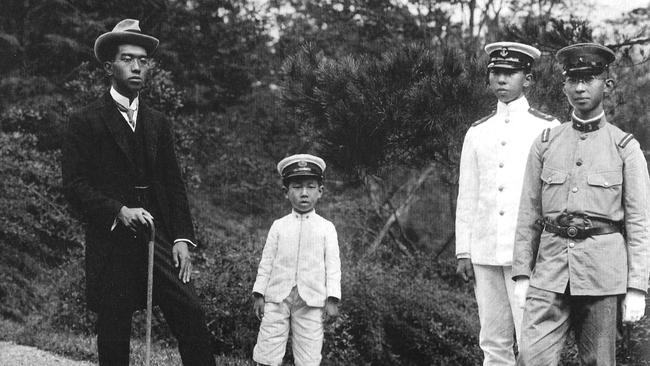Japan’s Prince Takahito spoke against his country’s crimes during World War II
When the dust of World War II began to settle Japan’s Prince Takahito escaped royal duties into a quiet life as a scholar.

Today in History
Don't miss out on the headlines from Today in History. Followed categories will be added to My News.
During World War II he spoke out against the war crimes being committed by the Japanese army and urged his brother, Emperor Hirohito, to abdicate.
As he turns 100 today, Takahito, Prince Mikasa, as he is known, must marvel at how much the world has changed and how the royal family has dwindled.
Fifth in line to the Japanese throne, Takahito was an unconventional Japanese royal, not afraid to speak out and who in the wake of the global conflict opted to lead a quieter life as a scholar, often shedding the trappings of royalty to walk the streets and catch the subway, like an ordinary citizen.
Born a century ago today, on December 2, 1915 in the Tokyo Royal Palace, he was the youngest of four sons of Emperor Taisho, who had ascended the Chrysanthemum throne in 1912, and his wife Empress Teimei.
Not long after Takahito’s birth his father’s mental health deteriorated and in 1921 Crown Prince Hirohito was named Prince Regent, aged 20. When Taisho died in 1926, Hirohito became emperor.
Takahito was educated at the Gakushuin, a school founded by Emperor Ninko in 1847 specifically to educate the sons of nobility and the royal family.
On a wall at the school were inscribed four maxims one of which was: “He that is ignorant of the classics, how can he regulate his own conduct?”
It was a lesson that Takahito took to heart, sparking a love of classical literature, although he later studied Middle Eastern rather than Japanese classics.
For the young man military studies took precedence and he was enrolled in the Imperial Japanese Army Academy in 1932.
When Takahito turned 20, in 1935, he was granted the title Prince Mikasa and given authorisation to start his own branch of the royal family. This measure was meant to ensure the continuation of the royal line in the event that neither of his brothers Hirohito, Yasuhito or Nobuhito produced a male heir.
After graduating from the academy in 1936 he became a sublieutenant in the Fifth Cavalry Regiment of the Japanese Army. He served in China during the Japanese invasions but he became increasingly distressed at the barbarity of the Japanese troops.
In 1940 he saw a film by germ warfare specialist Shiro Ishii showing bombs loaded with bubonic plague being used against the city of Ningbo. Horrified by what he saw he insisted that his brother the emperor watch the footage.
After war broke out with the US and the Allies in 1941, Takahito, promoted to major, became a critic of how the war was being conducted, to the annoyance of Hirohito. That year he also married Yuriko Takagi, daughter of Viscount Takagi.
After Japan’s surrender in 1945, Takahito could sense the anger among his own people directed at the emperor. In the Japanese Privy Council he spoke out against Hirohito urging him to accept blame for the defeat and to abdicate.
Despite his entreaties and world opinion demanding Hirohito pay for his part in the war, the Allies decided to keep Hirohito on his throne.
Two years later Takahito wrote an article warning that despite Japan’s restructuring as a democracy, “around my brother there still hangs a misty veil of traditional ideas” that could work against democracy.By then Takahito had settled as a scholar. He turned to the study of Middle Eastern literature at Tokyo University, becoming the director of the Association of Middle Eastern Studies.
Meanwhile Yuriko busied herself with charitable work including the Red Cross and as president of Boshi Aiikukai (Welfare Association for Widowed Mothers with Children.) The couple visited Australia in 1971 to attend an International Congress of Orientalists and were received by prime minister John Gorton.
JAPAN”S LINE OF SUCCESSION
TAKAHITO and his wife had five children, three sons and two daughters. The daughters left the royal family by marrying outside and the three sons all died leaving only daughters. His nephew the emperor Akihito (who succeeded Hirohito in 1989) should be succeeded by his son Crown Prince Naruhito, but Naruhito has only had a daughter so the line would then pass to Naruhito’s brother Akishino or his eight-year-old son Prince Hisahito. Failing that line the crown would pass to Akihito’s brother Hitachi, who is also lacking heirs. Since only males can inherit the throne Takahito therefore remains fifth in line
Originally published as Japan’s Prince Takahito spoke against his country’s crimes during World War II



